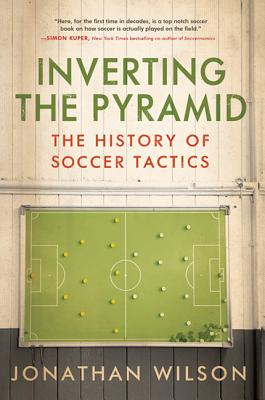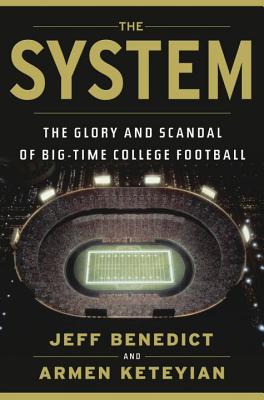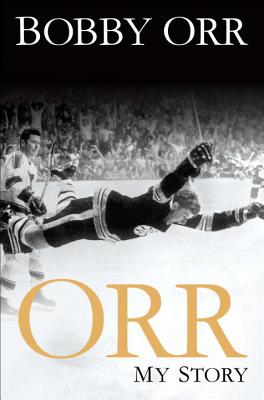The System: The Glory and Scandal of Big-Time College Football by Jeff Benedict and Armen Keteyian
College football has never been more popular—or more chaotic. Millions fill 100,000-seat stadiums every Saturday; tens of millions more watch on television every weekend. The 2013 Discover BCS National Championship game between Notre Dame and Alabama had a viewership of 26.4 million people, second only to the Super Bowl. Billions of dollars from television deals now flow into the game; the average budget for a top-ten team is $80 million; top coaches make more than $3 million a year; the highest paid, more than $5 million.
But behind this glittering success are darker truths: “athlete-students” working essentially full-time jobs with no share in the oceans of money; players who often don’t graduate and end their careers with broken bodies; “janitors” who clean up player misconduct; football “hostesses” willing to do whatever it takes to land a top recruit; seven-figure black box recruiting slush funds. And this: Despite the millions of dollars pouring into the game, 90 percent of major athletic departments still lose money. Yet schools remain caught up in an ever-escalating “arms race”—at the expense of academic scholarships, facilities and faculty.
Celebrated investigative journalists Jeff Benedict and Armen Keteyian were granted unprecedented access during the 2012 season to programs at the highest levels across the country at a time of convulsive change in college football. Through dogged reporting, they explored every nook and cranny of this high-powered machine, and reveal how it operates from the inside out. The result: the system through the eyes of athletic directors and coaches, high-flying boosters and high-profile TV stars, five-star recruits and tireless NCAA investigators and the kids on whom the whole vast enterprise depends.
Both a celebration of the power and pageantry of NCAA football and a groundbreaking, thought-provoking critique of its excesses, The System is the definitive book on the college game.
But it might just be possible that football isn't your game. Well, we have a book for that too!
Soccer
Inverting the Pyramid: The History of Soccer Tactics by Jonathon Wilson
 Inverting the Pyramid is a pioneering soccer book that chronicles the evolution of soccer tactics and the lives of the itinerant coaching geniuses who have spread their distinctive styles across the globe.
Through Jonathan Wilson's brilliant historical detective work we learn how the South Americans shrugged off the British colonial order to add their own finesse to the game; how the Europeans harnessed individual technique and built it into a team structure; how the game once featured five forwards up front, while now a lone striker is not uncommon. Inverting the Pyramid provides a definitive understanding of the tactical genius of modern-day Barcelona, for the first time showing how their style of play developed from Dutch "Total Football," which itself was an evolution of the Scottish passing game invented by Queens Park in the 1870s and taken on by Tottenham Hotspur in the 1930s. Inverting the Pyramid has been called the "Big Daddy" (Zonal Marking) of soccer tactics books; it is essential for any coach, fan, player, or fantasy manager of the beautiful game.
Inverting the Pyramid is a pioneering soccer book that chronicles the evolution of soccer tactics and the lives of the itinerant coaching geniuses who have spread their distinctive styles across the globe.
Through Jonathan Wilson's brilliant historical detective work we learn how the South Americans shrugged off the British colonial order to add their own finesse to the game; how the Europeans harnessed individual technique and built it into a team structure; how the game once featured five forwards up front, while now a lone striker is not uncommon. Inverting the Pyramid provides a definitive understanding of the tactical genius of modern-day Barcelona, for the first time showing how their style of play developed from Dutch "Total Football," which itself was an evolution of the Scottish passing game invented by Queens Park in the 1870s and taken on by Tottenham Hotspur in the 1930s. Inverting the Pyramid has been called the "Big Daddy" (Zonal Marking) of soccer tactics books; it is essential for any coach, fan, player, or fantasy manager of the beautiful game.Baseball
Class A: Baseball in the Middle of Everywhere by Lucas Mann
An unforgettable chronicle of a year of minor-league baseball in a small Iowa town that follows not only the travails of the players of the Clinton LumberKings but also the lives of their dedicated fans and of the town itself.
Award-winning essayist Lucas Mann delivers a powerful debut in his telling of the story of the 2010 season of the Clinton LumberKings. Along the Mississippi River, in a Depression-era stadium, young prospects from all over the world compete for a chance to move up through the baseball ranks to the major leagues. Their coaches, some of whom have spent nearly half a century in the game, watch from the dugout. In the bleachers, local fans call out from the same seats they’ve occupied year after year. And in the distance, smoke rises from the largest remaining factory in a town that once had more millionaires per capita than any other in America.
Mann turns his eye on the players, the coaches, the fans, the radio announcer, the town, and finally on himself, a young man raised on baseball, driven to know what still draws him to the stadium. His voice is as fresh and funny as it is poignant, illuminating both the small triumphs and the harsh realities of minor-league ball. Part sports story, part cultural exploration, part memoir, Class A is a moving and unique study of why we play, why we watch, and why we remember.
Hockey
Orr: My Story by Bobby Orr
One of the greatest sports figures of all time breaks his silence in a memoir as unique as the man himself.
He has never written a memoir, authorized a biography, or talked to journalists about his past, but now he is finally ready to tell his story.
Bobby Orr is often referred to as the greatest ever to play the game of hockey. From 1966 through the mid-seventies, he could change a game just by stepping on the ice. No defenseman had ever played the way he did, or received so many trophies, or set so many records, several of which still stand today.
But all the brilliant achievements leave unsaid as much as they reveal. They don’t tell what inspired Orr, what drove him, what it was like for a shy small-town kid to suddenly land in the full glare of the media. They don’t tell what it was like when the agent he regarded as a brother betrayed him and left him in financial ruin. They don’t tell what he thinks of the game of hockey today.
He is speaking out now because “I am a parent and a grandparent and I believe that I have lessons worth passing on.” Orr: My Story is more than a book about hockey—it is about the making of a man.




No comments:
Post a Comment